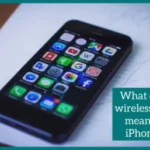The term “420 friendly” has permeated contemporary vernacular, particularly within online communities and social spheres. Understanding its nuances is crucial to navigate interactions and avoid misinterpretations. In essence, “420 friendly” signifies an openness to, or acceptance of, cannabis consumption. It’s a shorthand way of indicating that a person, place, or event is tolerant, and often participatory, regarding the use of marijuana.
However, the precise implications of “420 friendly” can vary substantially depending on the context. It is necessary to delve into the different scenarios where this term is employed to fully grasp its multifaceted nature. We will explore its application across various domains, providing a detailed breakdown of what one can expect.
Accommodation and Housing
When used in the context of housing, “420 friendly” typically means that the landlord or roommates are amenable to cannabis use on the premises. This doesn’t automatically translate to a free-for-all; it’s still imperative to clarify the specific rules and boundaries. Are you allowed to smoke indoors, or is it limited to outdoor spaces? Are there restrictions on the quantity you can possess? Such queries are vital to avoid future conflicts. Failing to do so can result in lease violations or strained interpersonal relationships. Furthermore, understand local laws; federal regulations may still prohibit cannabis use, even if state laws permit it. Open communication is the bedrock of a harmonious living arrangement.
Social Gatherings and Events
A social gathering advertised as “420 friendly” signals that cannabis consumption is likely to occur and is generally accepted by the hosts and attendees. This can range from casual gatherings to larger, organized events. Expectations vary, and it’s wise to ascertain the specifics beforehand. Is it BYOB (Bring Your Own Bud), or will cannabis be provided? Are there designated areas for consumption? The ambiance can vary from discreet and low-key to overtly cannabis-centric. Consider your own comfort level before attending. Discretion remains paramount, especially in public spaces.
Online Personas and Dating Profiles
In the digital realm, “420 friendly” serves as a filter, helping like-minded individuals connect. On dating apps or social media profiles, it communicates that the user is not averse to cannabis use and may even be an active participant. This can streamline the process of finding compatible partners or friends who share similar values. However, it’s essential to remember that “420 friendly” encompasses a spectrum of attitudes. Some may only partake occasionally, while others consider it a lifestyle. Clarify your own stance and preferences to avoid misunderstandings. A simple declaration of “420 friendly” doesn’t convey the complete picture; elaborate on your consumption habits and expectations.
Employment and Professional Settings
The application of “420 friendly” in professional contexts is significantly more complex and fraught with potential pitfalls. While some companies, particularly in the cannabis industry, may openly embrace cannabis culture, this is far from the norm. Claiming to be “420 friendly” as a business can attract a specific clientele, but it also carries risks. It could alienate potential customers or attract unwanted scrutiny from regulatory bodies. Employees who openly advertise their “420 friendly” status may face repercussions, depending on the company’s policies and local laws. Drug testing policies can vary, and even in states where cannabis is legal, employers often retain the right to enforce drug-free workplace policies. Discretion is paramount in professional settings; carefully weigh the potential consequences before expressing your views on cannabis.
Interpreting Beyond the Literal: Subtext and Nuance
“420 friendly” is more than just a straightforward declaration of cannabis acceptance; it can also hint at a broader set of values and lifestyle choices. Often, it suggests a more relaxed and open-minded attitude, a rejection of traditional norms, and an appreciation for alternative perspectives. However, generalizations can be misleading. Don’t assume that “420 friendly” automatically equates to any specific political leaning or philosophical outlook. Engage in genuine conversation to understand the individual’s true values and beliefs. Superficial labels can obscure underlying differences. Critical thinking is essential to avoid making unwarranted assumptions.
Legal Considerations and Caveats
Regardless of how “420 friendly” a situation appears to be, it’s crucial to remain cognizant of the legal landscape. Cannabis laws vary significantly from state to state, and even within states, local ordinances may impose further restrictions. Federal law still classifies marijuana as a Schedule I controlled substance, meaning that its possession, use, and distribution are technically illegal at the national level. This creates a complex and often contradictory legal framework. Always research and comply with the applicable laws in your jurisdiction. Ignorance of the law is never an excuse.
Navigating the world of “420 friendly” requires careful consideration, clear communication, and a healthy dose of common sense. By understanding the various contexts in which this term is used, and by probing beyond surface-level assumptions, you can foster more meaningful connections and avoid potential misunderstandings. The landscape is constantly evolving, so staying informed is key.









Leave a Comment